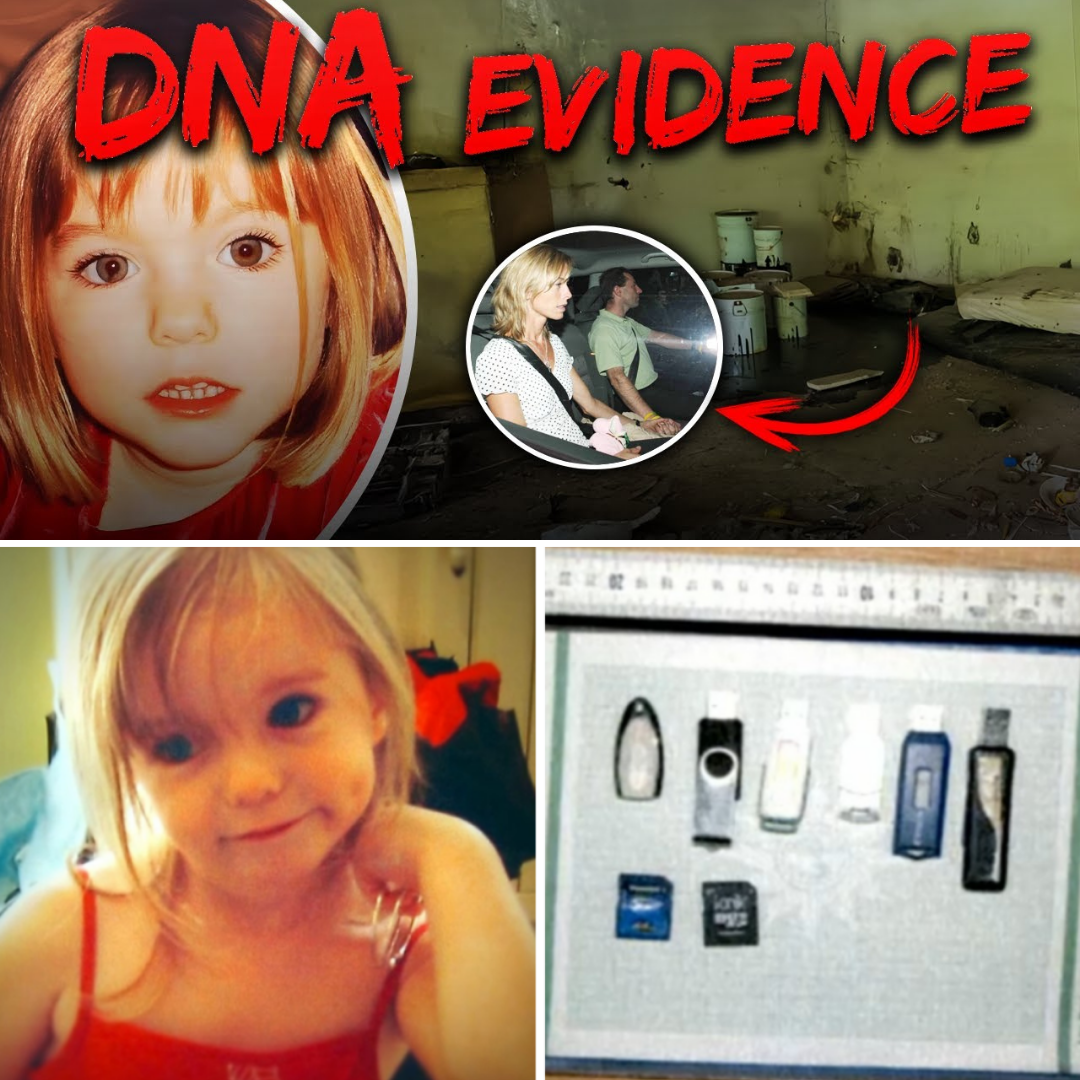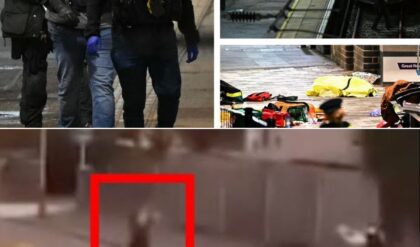10 Clues Ignored in the Madeleine McCann Case: Could the Mystery Have Been Solved?
On May 3, 2007, three-year-old Madeleine McCann vanished from her family’s vacation apartment in Praia da Luz, Portugal, sparking one of the most high-profile missing persons cases in modern history. Her disappearance, while her parents dined nearby, captivated the world, yet nearly two decades later, the case remains unsolved. The Portuguese police’s initial investigation, later supported by British and German authorities, has faced intense scrutiny for mishandling critical evidence and overlooking key leads. A haunting sentiment lingers: “Things could’ve been very different,” suggesting that missed opportunities may have cost investigators the chance to find Madeleine. This article explores ten crucial clues allegedly ignored by police, drawing on web insights and objective analysis to shed light on what went wrong and how these oversights shaped the enduring mystery.

1. Failure to Secure the Crime Scene
The most glaring misstep occurred in the immediate aftermath of Madeleine’s disappearance. When Kate McCann discovered her daughter missing at 10:00 PM, the apartment was not treated as a crime scene. Around 20 people, including hotel staff and guests, entered and exited before it was sealed, potentially contaminating forensic evidence. A Portuguese police chief later admitted vital clues may have been destroyed due to this oversight. Had the scene been preserved, fingerprints, DNA, or other traces could have pointed to a suspect early on, altering the investigation’s trajectory.
2. Inadequate House-to-House Inquiries
Standard procedure in missing persons cases involves thorough door-to-door inquiries to gather witness accounts. In Madeleine’s case, these were described as haphazard or nonexistent in some areas. Local residents, who joined uncoordinated searches, noted a lack of systematic canvassing. Witnesses who might have seen suspicious activity—such as a man carrying a child—were not promptly interviewed, allowing potential leads to go cold.
3. Delayed Border Alerts
Madeleine vanished in a coastal resort near Spain, yet Portuguese authorities failed to notify Spanish border officials until the following day. Roadblocks were not established, and no immediate alerts were issued to prevent a potential abductor from crossing borders. Given the proximity to international boundaries, this delay was critical, as an abductor could have fled Portugal within hours, evading early detection.
4. Dismissal of Early Sightings
On the night of Madeleine’s disappearance, Jane Tanner, a friend of the McCanns, reported seeing a man carrying a small child near the apartment at around 9:15 PM. This sighting was initially downplayed, and the man was never traced. Similarly, Irish couple Mary and Martin Smith saw a man carrying a child matching Madeleine’s description at 10:00 PM, 500 yards away, heading toward the beach. Their compelling account, including e-fit images, was not released until 2013, years after it could have prompted public tips.
5. Neglect of CCTV and Mobile Data
In 2007, CCTV was less ubiquitous, but securing available footage was a standard investigative step. In Praia da Luz, police failed to promptly check cameras in the area, missing potential images of suspects or vehicles. Additionally, mobile phone data from the resort, which could have revealed suspicious activity or placed individuals near the apartment, was not thoroughly analyzed until British detectives reviewed it years later. These oversights squandered early opportunities to identify persons of interest.
6. Misguided Focus on the McCanns
By September 2007, Portuguese police named Kate and Gerry McCann as “arguidos” (suspects), based on forensic tests suggesting Madeleine’s blood in a car they rented 25 days after her disappearance. However, the DNA evidence was inconclusive, with experts noting it could match many individuals. The focus on the McCanns diverted resources from other leads, fostering a theory that Madeleine died accidentally in the apartment—a hypothesis later criticized as implausible given the lack of definitive evidence. This misdirection delayed pursuit of external suspects.
7. Ignoring Christian Brueckner’s Criminal History
Christian Brueckner, named a suspect in 2020, was a known drifter and burglar in the Algarve between 1995 and 2007. He lived near Praia da Luz and had convictions for theft and sexual offenses against children. A 2006 theft arrest in Portugal should have flagged him as a person of interest, but Portuguese police did not connect him to Madeleine’s case at the time. A tip from associate Helge Busching in 2008 was also ignored by Scotland Yard until 2017, delaying investigation into Brueckner’s potential involvement.
8. Inconsistent Witness Statements
The McCanns and their friends, known as the “Tapas Seven,” provided statements that contained inconsistencies, such as whether the couple entered the apartment via the front or back door during checks. These discrepancies, exacerbated by language barriers and poor translation during Portuguese police interviews, fueled suspicion against the group. Rather than clarifying these inconsistencies through follow-up interviews, police leaned into a narrative of a “pact of silence,” missing chances to refine timelines or identify external witnesses.
9. Failure to Pursue International Sightings
In May 2007, a Norwegian woman reported seeing a girl resembling Madeleine in Morocco, asking, “Can we see Mummy soon?” The lead was not formally pursued for weeks, frustrating the McCanns. Other reported sightings in North Africa and Europe were similarly under-investigated, with private agencies like Método 3 later hired to follow up. Prompt action on these tips could have clarified whether Madeleine was trafficked or moved abroad.
10. Poor Forensic Handling of Key Items
Madeleine’s favorite toy, Cuddle Cat, was not tested for DNA, despite being handled by Kate McCann and potentially others. Similarly, forensic examinations of the apartment were inadequate, with no comprehensive DNA sweep conducted. The reliance on sniffer dogs, whose alerts were later deemed unreliable, further muddled the investigation. Proper forensic protocols could have yielded critical evidence, such as foreign DNA or fibers, to guide the case.
The Investigation’s Broader Failures
The Portuguese police’s initial response was marred by a lack of urgency and coordination. Detective Colin Sutton, reflecting on the case, noted a reluctance to “overreact” to missing child reports, as most resolve innocently. This mindset, coupled with insufficient manpower, led to a reactive rather than proactive approach. The apartment’s open window, noted by Kate McCann, was not immediately treated as an entry point, and the assumption that Madeleine wandered off delayed abduction theories.
The focus on the McCanns as suspects, driven by media pressure and cultural misunderstandings, compounded errors. Portuguese authorities later apologized in 2023, admitting they mishandled the case and failed to appreciate the McCanns’ position as foreigners. The British investigation, Operation Grange, launched in 2011, attempted to rectify these mistakes but faced challenges due to lost evidence and faded memories. Despite spending over £12.9 million by 2022, no definitive answers have emerged.
Christian Brueckner and Missed Opportunities
The identification of Christian Brueckner in 2020 marked a turning point, yet it underscored earlier failures. German prosecutors believe Brueckner, who allegedly confessed to an associate that Madeleine “didn’t scream,” killed her shortly after abduction. Evidence from his home, including writings about kidnapping children and over 75 children’s swimsuits, suggests a disturbing fixation. Yet, his presence in the Algarve, including a 2005 rape conviction in Praia da Luz, was overlooked during the initial investigation. Had police cross-referenced local criminal records, Brueckner might have been flagged sooner.
The McCanns’ Enduring Hope
Kate and Gerry McCann have never wavered in their search for Madeleine, marking her 22nd birthday in 2025 with a statement: “Still missing … still very much missed.” They continue to buy her birthday presents, holding onto hope despite German authorities’ belief that Madeleine is dead. The family’s spokesperson, Clarence Mitchell, emphasized their desire for truth and justice, acknowledging the grim possibilities but refusing to abandon hope.
Public sentiment remains divided. Some, as seen in X posts, criticize the investigation’s focus on the McCanns and question why early leads, like DNA or dog alerts, were dismissed. Others express frustration at the lack of closure, with Praia da Luz residents longing for resolution. The case’s global attention, likened to the mourning for Princess Diana, has kept it alive in the public consciousness, but it has also fueled rumors and misinformation.
Could Things Have Been Different?
The ten ignored clues highlight systemic flaws in the investigation, from procedural errors to cultural biases. Securing the crime scene, pursuing sightings, and investigating local criminals like Brueckner could have shifted the case’s outcome. The Portuguese police’s 2023 apology acknowledged these shortcomings, but it came too late to recover lost evidence. Operation Grange’s efforts, including searches in 2023 and 2025, have yielded no breakthroughs, with recent digs at the Arade Dam described as based on “vague intelligence.”
The phrase “Things could’ve been very different” encapsulates the tragedy of missed opportunities. Each overlooked clue represents a potential path to answers, whether Madeleine was abducted, as German prosecutors suspect, or met another fate. The case’s complexity, compounded by language barriers, media frenzy, and initial skepticism of an abduction, created a perfect storm of errors. While Brueckner remains the prime suspect, insufficient evidence prevents charges, leaving the mystery unresolved.
Conclusion
Madeleine McCann’s disappearance is a haunting reminder of how critical the first hours of an investigation are. The ten clues ignored by police—ranging from a contaminated crime scene to un pursued sightings—represent missed chances to uncover the truth. As Kate and Gerry McCann continue their search, supported by a global community, the case underscores the need for swift, coordinated action in missing child cases. Whether Madeleine is alive, as her parents hope, or deceased, as authorities fear, the failure to act on these clues has prolonged their anguish. The world still waits for closure, hoping that one day, the mystery of Madeleine McCann will be solved.





